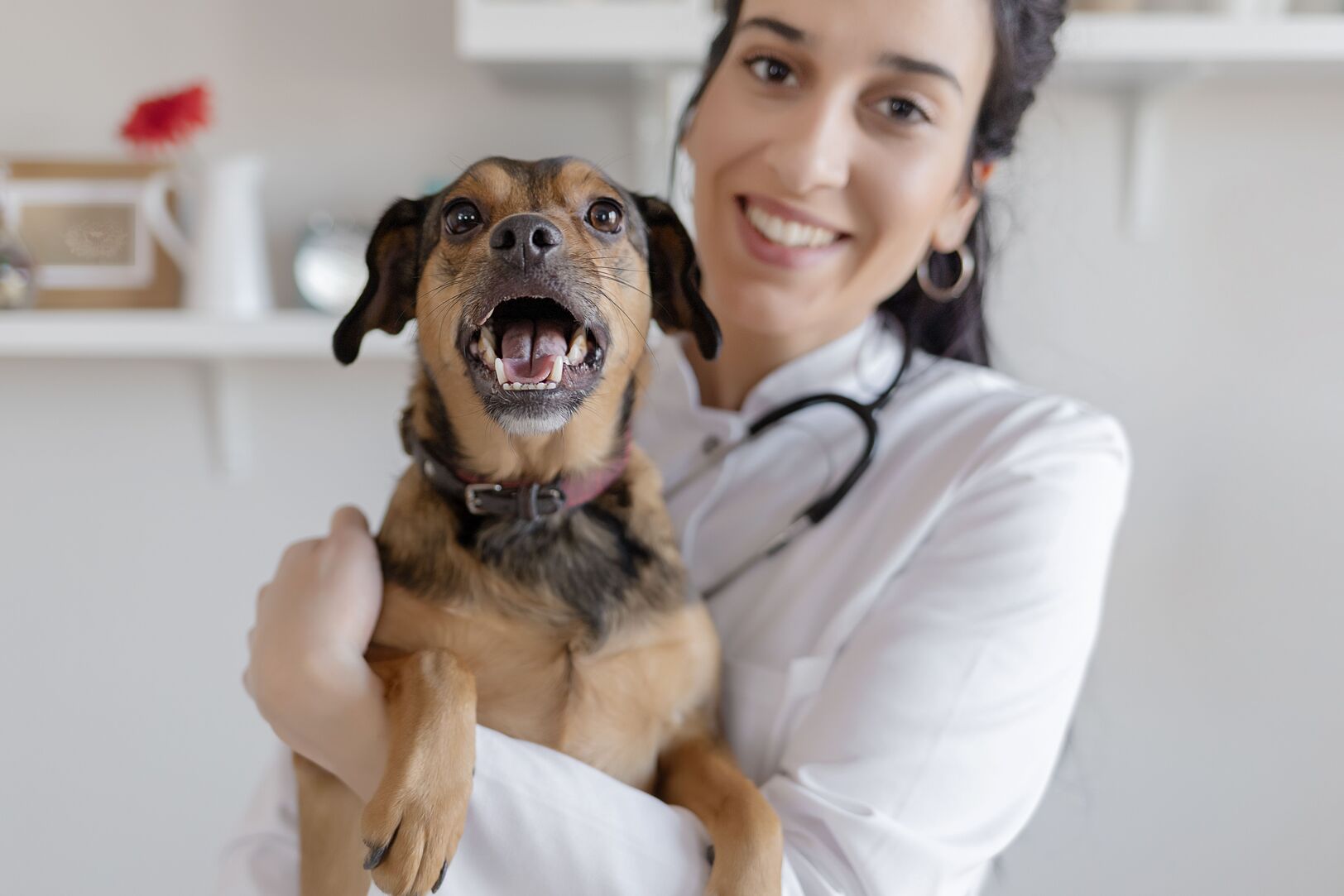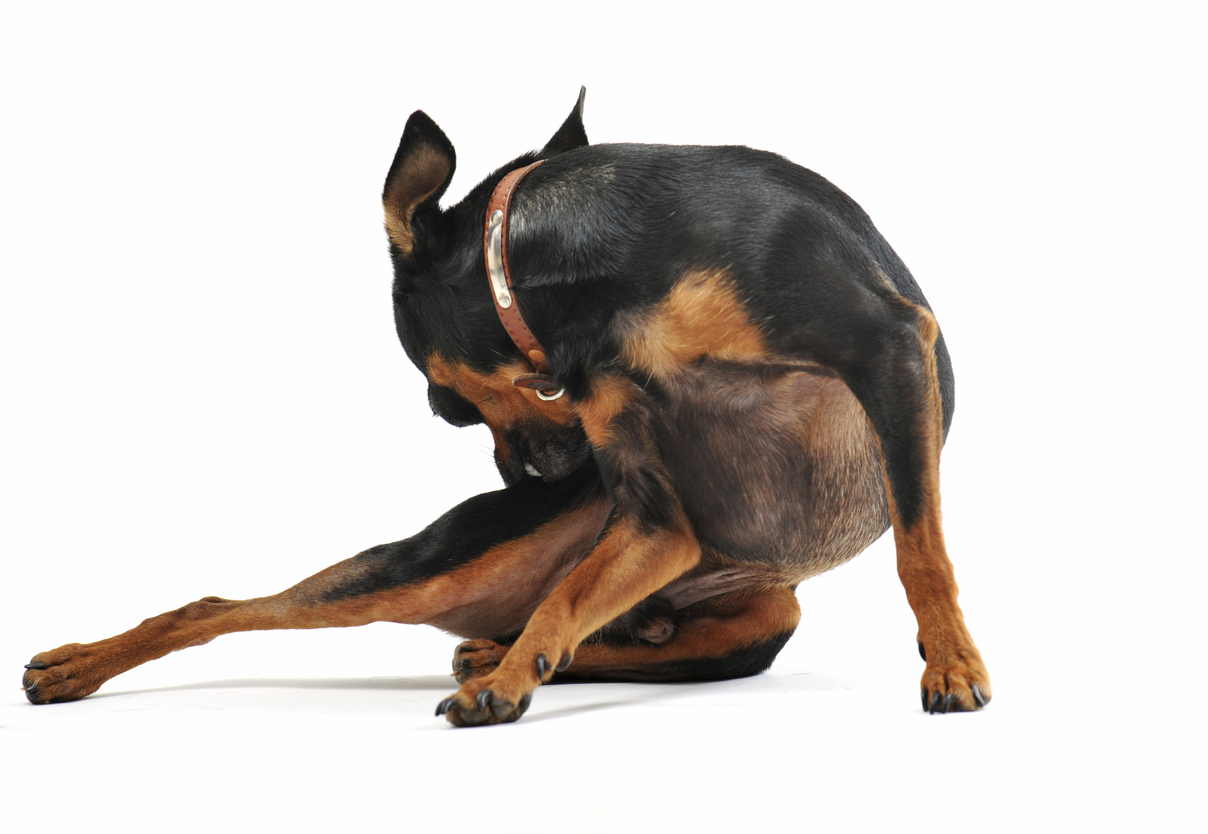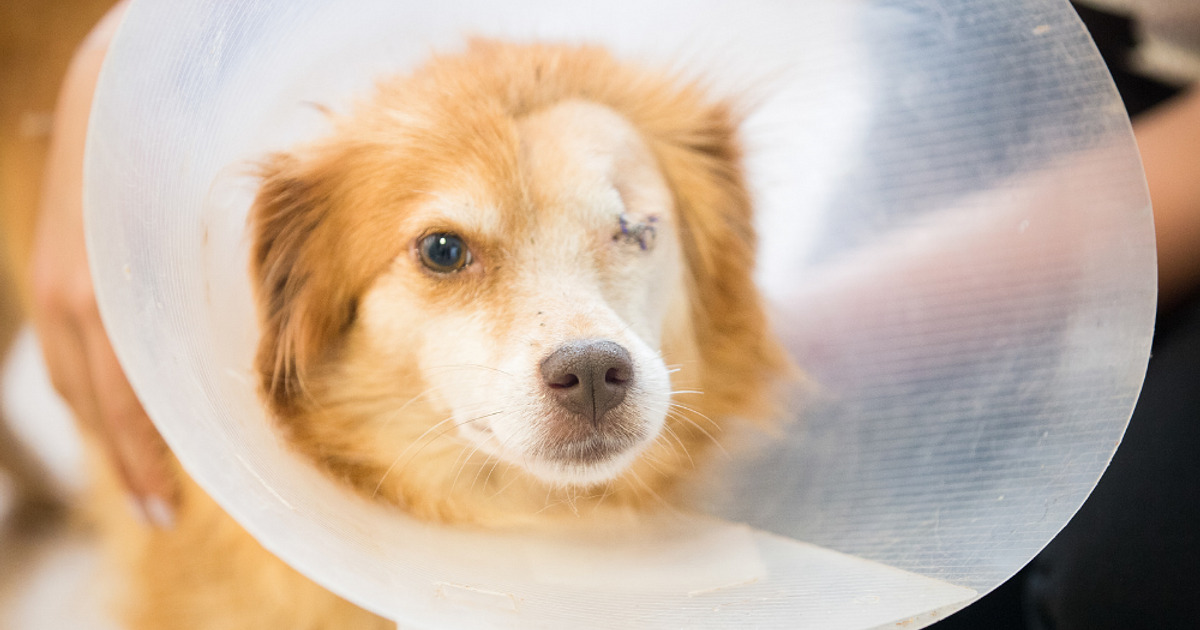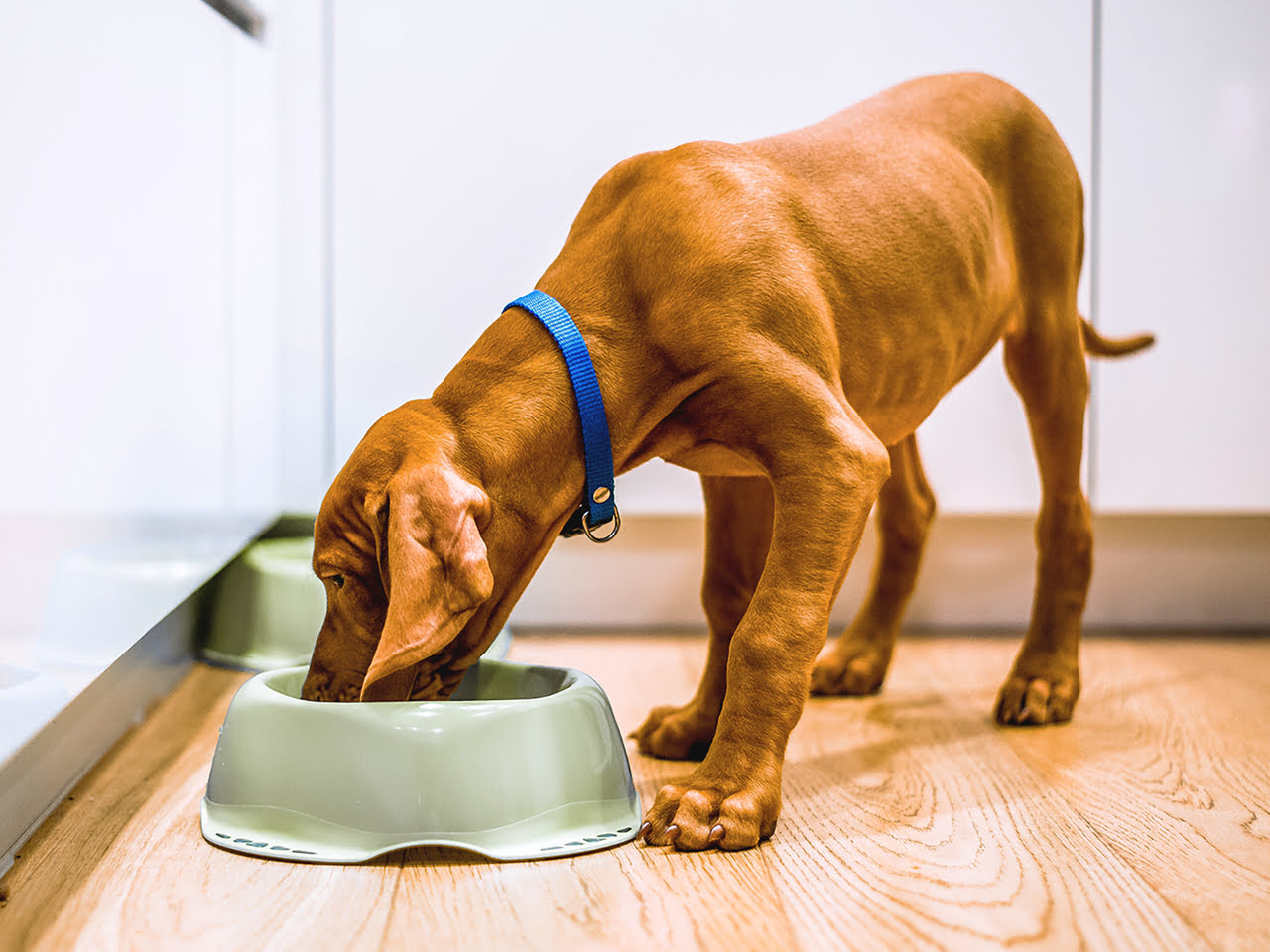Home>Health & Wellness>Common Health Issues>How Long Does A Dog Vaccination Last
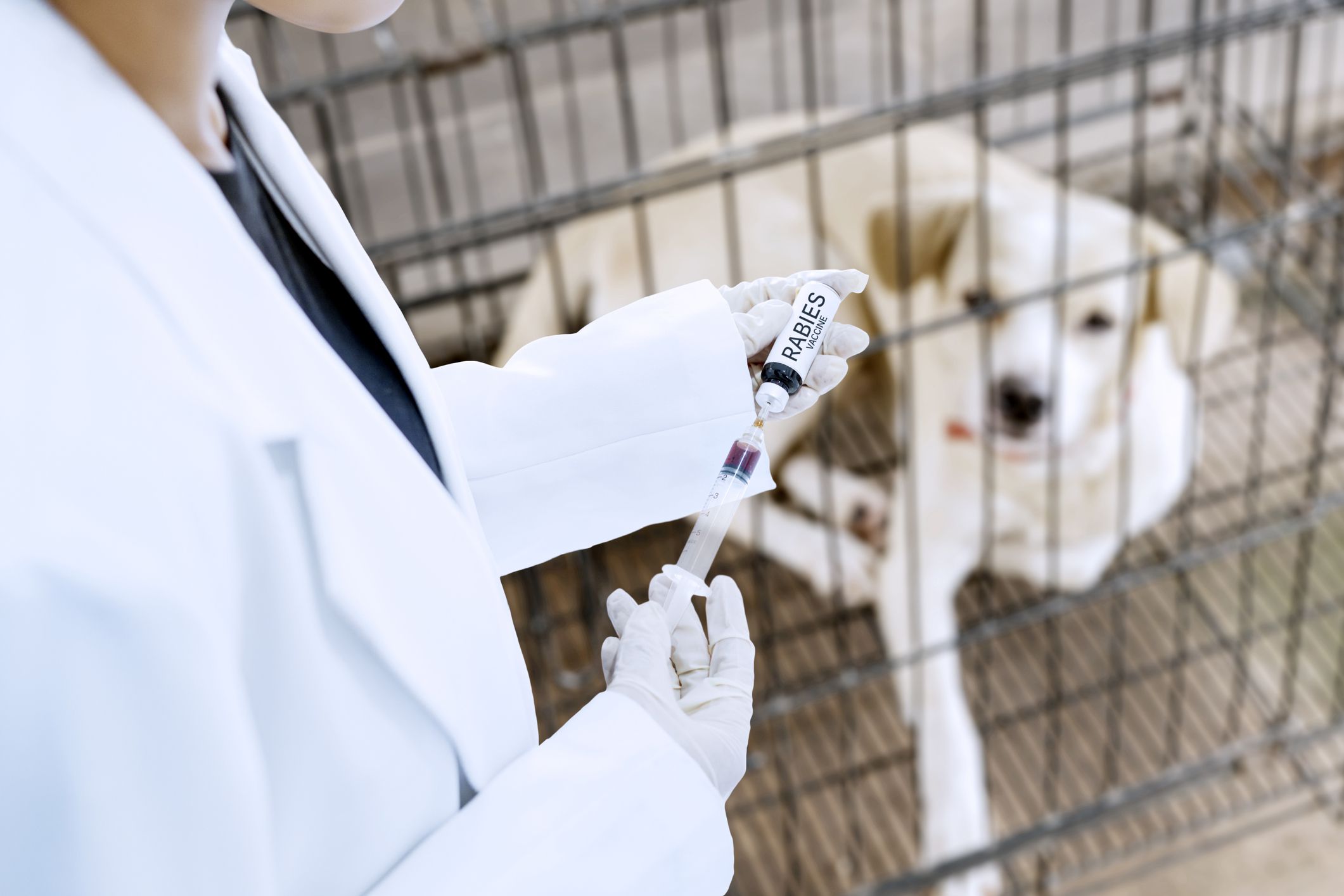

Common Health Issues
How Long Does A Dog Vaccination Last
Modified: February 21, 2024
Learn about common health issues in dogs and find out how long a dog vaccination lasts. Protect your furry friend with the right information.
(Many of the links in this article redirect to a specific reviewed product. Your purchase of these products through affiliate links helps to generate commission for Pawsomeoldies.com, at no extra cost. Learn more)
Table of Contents
Introduction
Vaccinations play a crucial role in safeguarding the health and well-being of our beloved canine companions. Just like humans, dogs require vaccinations to protect them from various contagious and potentially fatal diseases. These vaccinations work by stimulating the immune system to produce antibodies, which provide immunity against specific diseases. As responsible pet owners, it's essential to understand the significance of dog vaccinations and the duration for which they remain effective.
Ensuring that your furry friend receives the necessary vaccinations and boosters at the right intervals is vital for their overall health and longevity. However, many dog owners often wonder, "How long does a dog vaccination last?" This question is pivotal in ensuring that our canine friends receive timely and adequate protection against a myriad of infectious diseases.
In this comprehensive guide, we will delve into the intricacies of dog vaccinations, exploring the factors that influence their duration, the common vaccinations administered to dogs, and the importance of staying current with their vaccination schedule. By gaining a deeper understanding of these aspects, pet owners can make informed decisions regarding their dog's healthcare, ultimately contributing to a healthier and happier life for their furry companions.
Understanding Dog Vaccinations
Dog vaccinations are essential preventive measures designed to protect our canine companions from a range of potentially life-threatening diseases. These vaccinations work by introducing a small, harmless amount of a pathogen or its toxins into the dog's body. This exposure triggers the immune system to produce antibodies, which provide immunity against the specific disease. By bolstering the immune response, vaccinations enable the dog's body to recognize and combat the pathogen more effectively if exposed to it in the future.
Vaccinations are typically administered in the form of injections, although some can be delivered orally or intranasally. The timing and frequency of vaccinations are crucial, as they help ensure that the dog develops and maintains adequate immunity against various diseases throughout their life.
It's important to note that not all dogs require the same vaccinations. The specific vaccines recommended for a dog depend on factors such as their age, lifestyle, environment, and overall health. Veterinarians play a pivotal role in tailoring a vaccination schedule that aligns with the individual needs of each dog, taking into account their risk of exposure to specific diseases.
Core vaccinations, which are considered essential for all dogs regardless of their lifestyle, typically include those for rabies, distemper, parvovirus, and adenovirus. Non-core vaccinations, on the other hand, are recommended based on a dog's risk of exposure to certain diseases, such as leptospirosis, Bordetella, and Lyme disease.
Understanding the importance of dog vaccinations involves recognizing that they not only protect the individual dog but also contribute to the overall community and public health. By reducing the prevalence of contagious diseases, vaccinations help create a safer environment for both humans and animals.
In summary, dog vaccinations are a fundamental aspect of responsible pet ownership. By staying informed about the purpose and significance of vaccinations, pet owners can make informed decisions regarding their dog's healthcare, ensuring that they receive the necessary protection against a range of infectious diseases.
Factors Affecting Duration of Dog Vaccinations
Several factors influence the duration for which dog vaccinations remain effective. Understanding these factors is crucial for pet owners to make informed decisions about their dog's vaccination schedule. Here are the key factors that play a role in determining the duration of dog vaccinations:
1. Vaccine Type:
Different vaccines have varying durations of immunity. Some vaccines provide protection for several years, while others may require more frequent boosters to maintain immunity. Understanding the specific duration of immunity for each vaccine is essential for ensuring that dogs receive timely and adequate protection.
2. Dog's Age and Health:
The age and overall health of the dog can impact the duration of vaccine immunity. Puppies, for instance, may require a series of vaccinations to build up their immunity, while older dogs may need different vaccination schedules based on their health status. Additionally, underlying health conditions can affect the dog's immune response to vaccinations.
3. Vaccine Administration and Handling:
The proper administration and storage of vaccines are critical for ensuring their effectiveness. Vaccines must be administered according to the manufacturer's guidelines, including the correct dosage and route of administration. Furthermore, vaccines should be stored and handled in accordance with specific temperature and handling requirements to maintain their potency.
4. Environmental Factors:
The dog's living environment and potential exposure to infectious agents can influence the duration of vaccine immunity. Dogs that frequent areas with a high risk of disease exposure may require more frequent vaccinations to maintain adequate protection. Additionally, changes in the dog's environment, such as travel to regions with different disease prevalence, may necessitate adjustments to the vaccination schedule.
5. Immune Response Variability:
Individual variations in immune response can impact the duration of vaccine immunity. While most dogs develop a robust immune response to vaccinations, some may have a less effective response, requiring closer monitoring and potentially more frequent boosters to ensure continued protection.
By considering these factors, pet owners can work closely with their veterinarians to develop a tailored vaccination schedule that aligns with their dog's specific needs. This proactive approach not only promotes the dog's health and well-being but also contributes to the overall effectiveness of vaccination programs in safeguarding canine populations from infectious diseases.
Common Dog Vaccinations and Their Duration
Understanding the common dog vaccinations and their duration is essential for ensuring that our furry companions receive adequate protection against prevalent infectious diseases. Here are some of the most common dog vaccinations and insights into their duration of immunity:
1. Rabies Vaccination:
- Duration: The duration of immunity for the rabies vaccination can vary depending on the type of vaccine administered. In general, the initial rabies vaccination for dogs is typically effective for one year. Subsequent booster vaccinations may provide extended immunity for up to three years, depending on the specific vaccine and local regulations.
2. Distemper Vaccination:
- Duration: The distemper vaccination is a core vaccine that provides crucial protection against a highly contagious and potentially fatal viral disease. Following the initial series of vaccinations, which are often administered during puppyhood, the immunity provided by the distemper vaccine can last for three years or longer with appropriate booster shots.
3. Parvovirus Vaccination:
- Duration: The parvovirus vaccination is vital for safeguarding dogs against the highly contagious parvovirus infection, which can cause severe gastrointestinal illness. After the initial vaccination series, booster shots are typically recommended every three years to maintain adequate immunity.
4. Adenovirus Vaccination:
- Duration: The adenovirus vaccination, which protects against canine infectious hepatitis, is an essential component of the core vaccination protocol. With proper administration and timely boosters, the adenovirus vaccine can provide immunity for up to three years or longer.
Read more: How Long Do Arthritis Flare-Ups Last In Dogs
5. Leptospirosis Vaccination:
- Duration: The leptospirosis vaccine is considered a non-core vaccination and is often recommended based on a dog's lifestyle and exposure risk. The duration of immunity for the leptospirosis vaccine can vary, with some formulations requiring annual boosters to maintain protection against this bacterial disease.
6. Bordetella (Kennel Cough) Vaccination:
- Duration: The Bordetella vaccine, which protects against kennel cough, is commonly administered to dogs that frequent boarding facilities, dog parks, or other social settings. Depending on the specific vaccine formulation, boosters may be required annually to sustain immunity against Bordetella bronchiseptica and other related pathogens.
7. Lyme Disease Vaccination:
- Duration: The Lyme disease vaccine is recommended for dogs residing in or visiting regions where Lyme disease is prevalent. The duration of immunity for the Lyme disease vaccine can vary, with some formulations necessitating annual boosters to ensure continued protection against the tick-borne bacterium that causes Lyme disease.
Understanding the duration of immunity for these common dog vaccinations empowers pet owners to work collaboratively with their veterinarians in devising a tailored vaccination schedule that aligns with their dog's specific needs. By staying informed about the recommended vaccination intervals and boosters, pet owners can ensure that their canine companions receive optimal protection against a spectrum of infectious diseases, contributing to their long-term health and well-being.
Importance of Keeping Up with Dog Vaccinations
Ensuring that dogs receive timely and appropriate vaccinations is paramount for maintaining their overall health and well-being. The importance of keeping up with dog vaccinations cannot be overstated, as these preventive measures offer numerous benefits for both individual dogs and the broader community. Here's a detailed exploration of why staying current with dog vaccinations is crucial:
Read more: How Long Does A Dog Live With Cancer
1. Disease Prevention:
Regular vaccinations are the cornerstone of disease prevention in dogs. By administering vaccines at the recommended intervals, pet owners can protect their furry companions from a range of contagious and potentially life-threatening diseases. Vaccinations not only shield individual dogs from illness but also contribute to reducing the prevalence of infectious diseases within the canine population.
2. Long-Term Health:
Maintaining up-to-date vaccinations is essential for promoting the long-term health and vitality of dogs. Vaccines help bolster the immune system, enabling dogs to mount a robust defense against specific pathogens. By staying current with vaccinations, pet owners can help safeguard their dogs from debilitating illnesses and potentially costly medical treatments associated with preventable diseases.
3. Legal Compliance:
In many regions, including the requirement for rabies vaccinations, adherence to specific vaccination protocols is a legal obligation for dog owners. Failure to comply with these regulations can result in legal repercussions and may jeopardize the well-being of both the dog and the community. By ensuring that their dogs receive the necessary vaccinations and booster shots as mandated by local laws, pet owners can uphold legal compliance and contribute to public safety.
4. Community Health:
Vaccinating dogs not only protects individual pets but also plays a crucial role in promoting community health. By reducing the spread of contagious diseases, vaccinations contribute to creating a safer environment for all dogs, as well as for humans who may come into contact with them. This collective effort in disease prevention helps foster a healthier and more secure community for both pets and their human companions.
5. Peace of Mind:
Staying current with dog vaccinations provides pet owners with peace of mind, knowing that they are taking proactive steps to protect their beloved companions from preventable diseases. This sense of assurance stems from the knowledge that their dogs are equipped with the necessary immunity to ward off potential health threats, allowing them to lead happier, healthier lives.
In summary, the importance of keeping up with dog vaccinations extends far beyond individual pet care. It encompasses disease prevention, legal compliance, community health, and the overall well-being of dogs. By prioritizing regular vaccinations and working closely with veterinarians to devise tailored vaccination schedules, pet owners can play a pivotal role in safeguarding the health of their canine companions and contributing to a safer and more resilient canine community.
Conclusion
In conclusion, the duration of dog vaccinations is influenced by various factors, including the type of vaccine, the dog's age and health, vaccine administration and handling, environmental factors, and immune response variability. Understanding these factors is crucial for pet owners to make informed decisions about their dog's vaccination schedule, ensuring that they receive timely and adequate protection.
Common dog vaccinations, such as those for rabies, distemper, parvovirus, adenovirus, leptospirosis, Bordetella, and Lyme disease, each have specific durations of immunity. By staying informed about the recommended vaccination intervals and boosters, pet owners can ensure that their canine companions receive optimal protection against a spectrum of infectious diseases, contributing to their long-term health and well-being.
The importance of keeping up with dog vaccinations cannot be overstated. Regular vaccinations are essential for disease prevention, promoting long-term health, legal compliance, community health, and providing peace of mind for pet owners. By prioritizing regular vaccinations and working closely with veterinarians to devise tailored vaccination schedules, pet owners can play a pivotal role in safeguarding the health of their canine companions and contributing to a safer and more resilient canine community.
Ultimately, the well-being of our furry companions hinges on proactive and informed healthcare decisions, including maintaining up-to-date vaccinations. By understanding the intricacies of dog vaccinations and their duration, pet owners can embark on a journey of responsible pet ownership, ensuring that their dogs lead healthy, vibrant lives free from preventable diseases.


